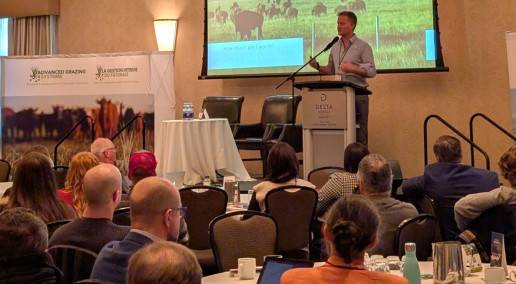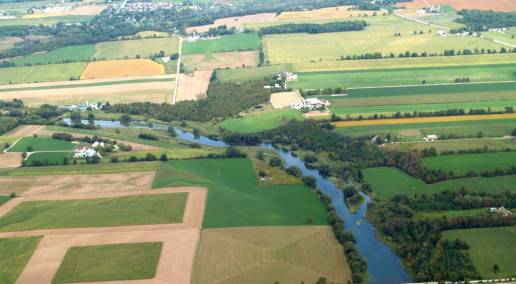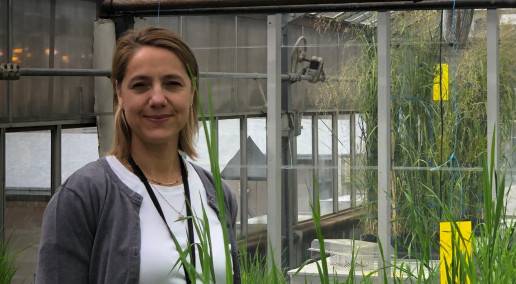Brooke McWherter is a natural resource social scientist and research assistant professor at the University of Nebraska-Lincoln in the Department of Agronomy and Horticulture. Her work examines factors influencing decision-making around adoption and collaboration, program evaluation and network development.
Brooke focuses on transformational adaptation to identify the opportunities and challenges 30 to 50 years in the future using predictive modeling based on expert interviews, consensus interviews and bringing the data collected to farmers and asking if they agree with the approaches.
Brooke presented on her work at the Canadian Forage and Grassland Association’s (CFGA) 2024 conference in Guelph, Ontario, in December where she explained that transformational adaptation is different from normal adaptation – it focuses on incremental changes. She said it can happen quickly, depending on the conditions, and provided an example from Mongolia where due to changes in government restrictions farmers moved from farming sheep to grazing cattle in a few years due to top-down changes.
The second example she provided was one from India, where farmers are shifting from cereal crops to apples and tree crops. There, farmers are experiencing the effects of climate change and decided conditions weren’t working any more for their crops.
Brooke said she is currently using the multi-step approach with producers in Nebraska, Georgia and Ohio. The team data analyst is pulling environmental, market and demographic data and putting it into a model. After that, an algorithm will predict how the data will change into the future.
At the same time, experts such as extension staff, climatologists, commodity boards and stakeholder groups are interviewed asking what they see as challenges and opportunities in the field. This is followed by a consensus survey which asks about the likelihood of trends increasing or decreasing in the next 30 years.
All of this data is taken back to the farmers, who are asked if they agree or disagree. This all creates major themes such as climate change, current and future opportunities, infrastructure and weaknesses.
The results of the work identified concerns about the low diversity in existing seed genetics, especially in commodity crops. The concern is this will allow for more pest-resistance or more disease and increased input pricing.
Other factors included corporate influences and consolidation of farms, where corporate interests may influence decision-making priorities, regulations for herbicides and pesticides in the U.S., the increased costs of production versus low profit margins and climate variability.
The study looked mostly at crops, but concerns around livestock also surfaced. The aging farm population was highlighted as a challenge. In the U.S., there is still no national required traceability program for beef, which producers identified as major bio security issue.
She closed by moving away from the negative challenges and looking at potential shifts and what it could mean for the future. Producers are interested in different practices for restoring soils and using regenerative grazing and agriculture. They’re also interested in opportunities to support mental health, technology transformation and precision ag where smaller, more efficient machines are used.
The next step for the team is to validate the research.
2024 conference recordings
The recording of this presentation, as well as all of the recordings from the 2024 conference proceedings, is available for free to those who registered for the 2024 conference. For more information, email [email protected].
Save the date for the CFGA’s 2025 conference
The CFGA’s 16th Annual Conference will take place Nov. 18 to 21 in Fredericton, New Brunswick. The conference is being organized in partnership with the CFGA’s provincial partner, the New Brunswick Soil and Crop Improvement Association (NBSCIA). The theme is Greener Horizons: Technological Innovations in Forage and Grassland Management and the event will include pre-conference workshops, two days of presentations and a not-to-be-missed post conference tour to several New Brunswick farms. More details are available on the CFGA conference website.
Back to Conference 2024



Leave a Comment